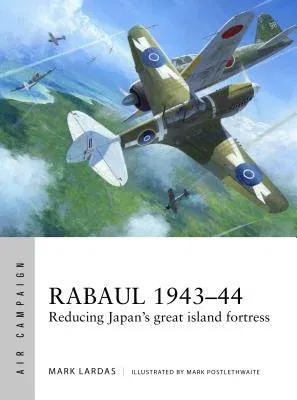Mark Lardas
(Author)Rabaul 1943-44: Reducing Japan's Great Island FortressPaperback, 23 January 2018

Qty
1
Turbo
Ships in 2 - 3 days
Only 2 left
Free Delivery
Cash on Delivery
15 Days
Free Returns
Secure Checkout

Part of Series
Air Campaign
Print Length
96 pages
Language
English
Publisher
Osprey Publishing (UK)
Date Published
23 Jan 2018
ISBN-10
1472822447
ISBN-13
9781472822444
Description
Product Details
Author:
Book Format:
Paperback
Country of Origin:
US
Date Published:
23 January 2018
Dimensions:
23.88 x
18.54 x
0.76 cm
Illustrator:
ISBN-10:
1472822447
ISBN-13:
9781472822444
Language:
English
Location:
New York
Pages:
96
Publisher:
Series:
Weight:
272.16 gm